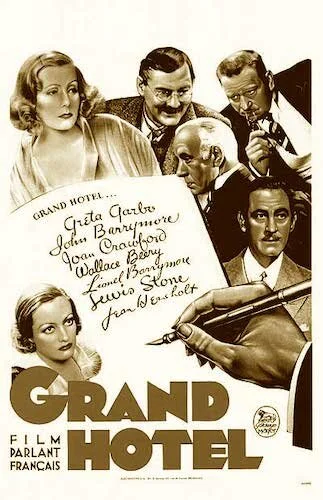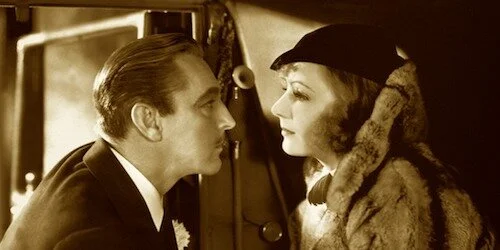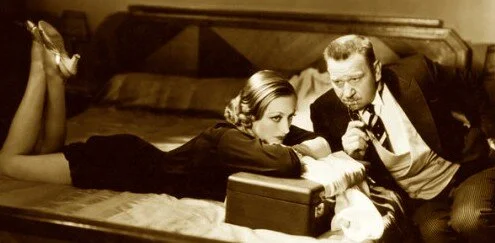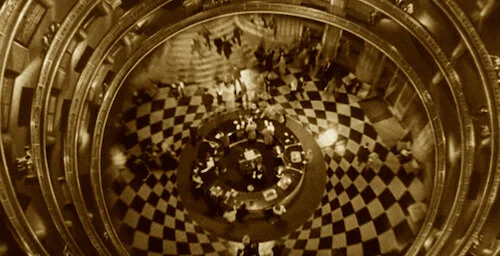Grand Hotel
This review is a part of the Best Picture Project: a review of every single Academy Award winner for the Best Picture category. Grand Hotel is the fifth Best Picture winner, and won at the 1931/1932 Academy Awards ceremony.
I remember the first time I watched Grand Hotel, it felt like such an anomaly. Here we had a handful of stories all tossed into one hotel in Berlin. The film acted as a hub for all walks of life. The opening (and final) line that sums up the entire flick is literally an admittance that "nothing ever happens" in the hotel, outside of people coming and going. I liked the film, but not all that much. It felt like it was maybe a niche idea back in 1932 that has been fleshed out so much better in other interwoven narrative pictures like Magnolia or Babel.
Grand Hotel just loomed in my mind, though, begging to be revisited. I'm not even entirely sure why. After another attempt, the film was a little bit more moving. This time, I could take note of the destinations these guests had ahead of them; both literally and emotionally. Like I was Big Brother, I felt as though I was invading the privacy of these travellers in their most vulnerable moments. The film felt a bit stronger.
Grand Hotel was one of the first successful films that boasted a star studded cast, featuring veterans and newcomers alike.
At the time of this review, I feel like I have made my peace with Grand Hotel: a peculiar character study that simply presents itself and wonders happen. There are individuals tangled in the webs of crime, love torn dreamers, and the final days of one's life spent living carefree. The "nothing ever happens" line isn't quite true. Well, as a conventional plot, it might be. You're witnessing the cycles of love, guilt, greed, misfortune, and luxury all turning at once.
With this many tales, you need many stars, and Grand Hotel pulled off a magnificent cast for its time. We're talking Greta Garbo, Joan Crawford, both John and Lionel Barrymore, and more. Would it boggle your mind if I told you that not a single performance was nominated for an Oscar? What about if I told you Grand Hotel didn't win anything outside of Best Picture? Finally, the cherry on top: Grand Hotel -- the fifth Best Picture winner ever -- literally was only nominated for Best Picture and nothing else. It goes without saying that this is the first and only time this has ever happened, but that adds to the film's peculiar legacy. The film beat Bad Girl, Shanghai Express, and The Champ, all major contending Best Picture nominees (Frank Borzage won Best Director for Bad Girl).
Much of the film’s appeal is invading the milleu of differing classes.
How does something like this even happen? Maybe Grand Hotel just appealed to everyone in a way that overrode the votes for these other films. I wouldn't say that Grand Hotel is a safe film, nor would I say that it's necessarily the best nominated film here (I personally would like to make a case for Josef von Sternberg's Shanghai Express, which is coincidentally compared to Grand Hotel for its foreign location container of plot threads). Grand Hotel just sticks with you, and I think that allowed it to win the top prize.
I'm not sure if I will ever view the film as the best of its era, but I have warmed up to its appeal. There is a disconnect between the ways people portray themselves in a public setting, and how they open up behind closed doors. You see both in Grand Hotel: the masquerade of the human race, and the self reflections in the forms of monologues or private conversations. It's an acting tapestry. "Nothing ever happens" is not an apology for laziness, but a humble form of self deprecation for a film that actually loves to toy with everything that makes us human.
It sounds typical to say that the hotel is a character in the film, but it truly does come alive with its guests, elaborate design, and shots (like this) that emphasize its prominent existence.
I get that films have done the multi-story gimmick better since, but you have to admit that Grand Hotel is a little bold for a mainstream film with such huge names attached to it. The most important character is the hotel itself, which never judges, never forces, and never gossips. It just exists, as an open ear and a pair of welcome arms. Like its performers checking in, it also is there for us. I won't lie to you. I wouldn't mind going back a few times even more so in the future.
Andreas Babiolakis has a Masters degree in Film and Photography Preservation and Collections management from Ryerson University, as well as a Bachelors degree in Cinema Studies from York University. His favourite times of year are the Criterion Collection flash sales and the annual Toronto International Film Festival.







